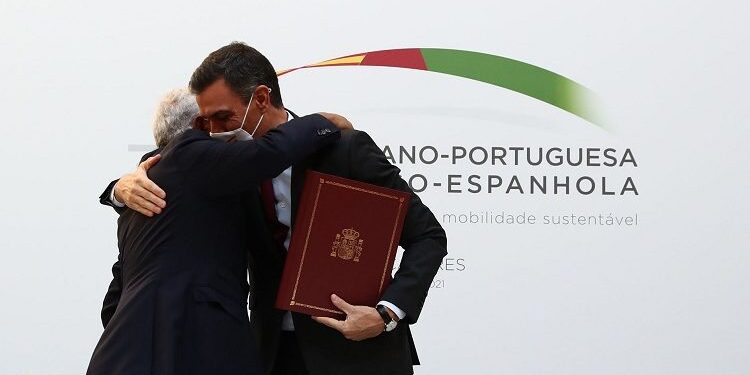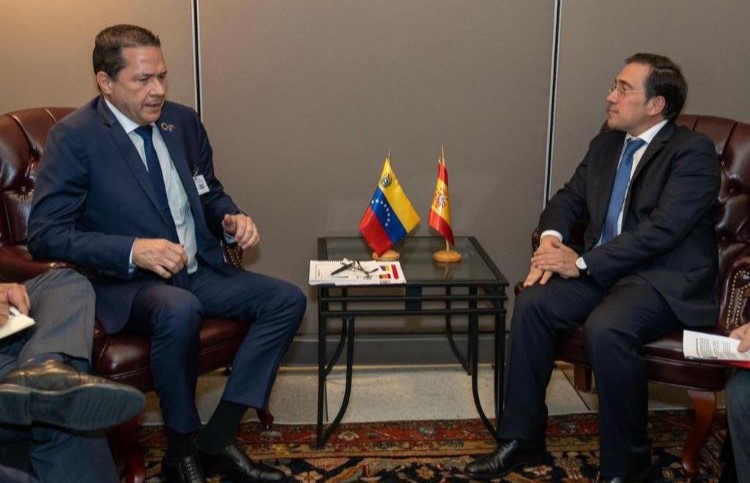The Diplomat
The Council of Ministers yesterday submitted to the Parliament the Treaty of Friendship and Cooperation between Spain and Portugal, while authorizing the manifestation of Spain’s consent to be bound by the aforementioned Treaty. The text, which renews the previous treaty of 1977, foresees the celebration of annual bilateral summits presided by the Heads of Government and promotes cross-border cooperation.
At the XXXI Spanish-Portuguese Bilateral Summit, held on October 10, 2020 in Guarda, the Governments of Spain and Portugal affirmed their intention to update and give shape to “the rich and diverse network of bilateral ties” through a Treaty of Friendship and Cooperation that renews, but does not repeal, the agreement currently in force, signed on November 22, 1977. Once authorized by the Council of Ministers on October 26, 2021, the signing of the treaty took place in Trujillo (Cáceres) on October 28, 2021, by the President of the Government, Pedro Sánchez, and the Portuguese Prime Minister, António Costa, on the occasion of the celebration of the XXXII Spanish-Portuguese Bilateral Summit.
The objective of the agreement is the deepening of cooperation and strategic coordination, including cross-border cooperation and cooperation with outermost regions, in the face of the new challenges of a globalized world, “all aimed at social justice, welfare and progress of our peoples”. It also reflects the commitment of the two countries “in the European construction embodied by the European Union”, their “Atlantic vocation, which is expressed through their membership in the Ibero-American Community of Nations”, the relations with Africa and the Mediterranean and the defense of multilateralism based on the central role of the United Nations.
The text also defines the instruments of political cooperation and the structures of consultation and cooperation that structure bilateral relations and includes, for the first time in an international agreement, the holding of annual bilateral summits presided over by the Heads of Government, as well as the establishment of a body to follow up on the commitments assumed at the summits. It also provides for annual meetings of the Ministers of Foreign Affairs and Defense, parliamentary cooperation and the promotion of structured mechanisms for dialogue between the two civil societies and social partners.
The agreement also specifies that cross-border cooperation is “one of the fundamental axes of the bilateral relationship” and that, for this reason, the two governments undertake to “give continuity to the existing tools and to promote joint strategies” in this area. In addition, it examines the areas of cooperation in areas such as languages, education and culture; environment, connectivity, energy, science and technology, economy, justice, home affairs and civil protection, public health, labor, employment and social policy and outermost regions.
The Treaty also addresses “the deepening of the European Union” and the possibilities of “joint action at the multilateral level, with special attention to global issues and the regional cooperation frameworks of which they are part, highlighting the Ibero-American Community of Nations and the instances of cooperation in the Mediterranean”.







